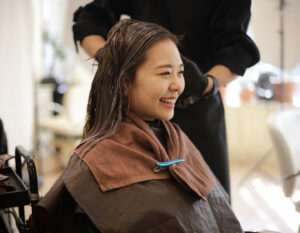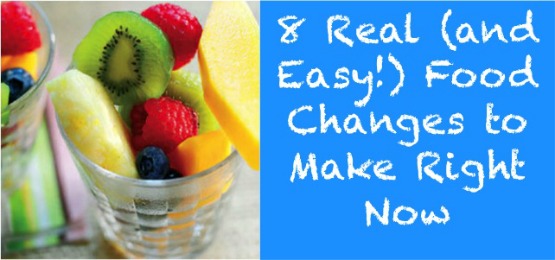
Living in Asia probably means that we eat healthier than the “average” person, but not by much, and we still have a long way to go in embracing a more natural, whole foods diet as we see diets worldwide mimic the Standard American Diet.
Changing your diet is never easy, that being said, I find it’s actually pretty easy to begin eliminating questionable ingredients as long as you focus on one at a time.
So here’s a list of real food changes you can implement in your kitchen, the sooner the better!
1. Learn how to read ingredient labels – aim at steering clear of the ingredients listed here-under.
2. Eliminate white sugar – the good news is that there are so many wholesome, healthy sweeteners! The bad news is the options can be somewhat confusing. Sucanat, raw honey, coconut nectar, maple syrup and stevia are a few great substitutes. Beware of hidden sugars, consider the following sources of processed sugar: boxed cereals, bread, drinks, store bought jams and jellies, pancake syrup, salad dressings, condiments such as ketchup and so much more.
3. Use whole grain instead of white flour – white flour is made from stripping wheat of everything useful and bleaching it to remove the milled yellow color. The flour itself is devoid of the fiber which aids in passing easily through the large intestine. A person following a diet that regularly includes eating white flour products has an increased risk of developing a variety of ailments and diseases. So avoid white flour products, read labels to select whole grains or sprouted grain flour (not enriched flours because the nutrients are often replaced with coal tar derivatives) and seriously reduce your intake of white flour products (breads, pizza crusts, pasta, bagels, cookies, and so much more) to 2 times a week.
4. Eat more fruits and veggies – try to buy organic fruits and veggies when necessary, and thoroughly wash and peel the ones that aren’t. But only buy organic when necessary. Use the Dirty Dozen and Clean Fifteen by the Environmental Working Group as a starting point!
THE DIRTY DOZEN
1. Apples
2. Celery
3. Strawberries
4. Peaches
5. Spinach
6. Nectarines
7. Grapes
8. Sweet bell peppers
9. Potatoes
10. Blueberries
11. Lettuce
12. Kale/Collard Greens
THE CLEAN FIFTEEN
1. Onions
2. Sweet Corn (but safer to get organic to avoid GMO)
3. Pineapples
4. Avocado
5. Asparagus
6. Sweet Peas
7. Mangoes
8. Eggplant
9. Cantaloupe
10. Kiwi
11. Cabbage
12. Watermelon
13. Sweet Potatoes
14. Grapefruit
15. Mushroom
5. Stop eating processed foods – processed foods are foods that have been altered from their natural state. That’s why pre-packaged food stays fresh for months, when the same food made from scratch grows moldy in just a few days. Manufacturers use man-made ingredients that prolong a product’s shelf life and these same ingredients are proving harmful to human health. Steer clear of Trans Fats, High Fructose Corn Syrup, MSG, Artificial Colors, Artificial Flavorings, Artificial Sweeteners, Hydrogenated Oils, Refined Grains & Salt.
6. Replace boxed cereal with healthier breakfasts – cereal is the epitome of all the processed foods to avoid in just one box. It is definitely NOT the ideal breakfast. Even if it is organic and whole grain… it is still processed food that is hard for the body to digest, which is not exactly a nice way to “wake up” your digestive system for the day.
7. Make your favorite recipes healthier – by learning how to substitute old ingredients with new healthy, nutrient dense, tasty ingredients.
8. Use a meal plan to plan ahead – I notice it every week in my kitchen. Although there are no nasties to be found, no boxes or processed foods of any kind, when I plan ahead, my family eats wholesome, balanced meals and there’s no waste in my fridge. When I don’t plan ahead, I’m too tired to make the right last minute decision and I go with the quickest solution. Learn how to use a meal plan!
Sarah Sanesi is a holistic health practitioner, a certified baby planner and a greenproofer. She founded Baby Bloom, which offers a wide range of services for expecting couples and young families, including greenproofing that provides education, support and resources in order to protect families from unsafe exposure to potentially toxic substances in their home, on their body and in their environment.
www.babybloom.com.hk
 View All
View All


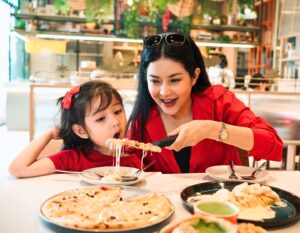





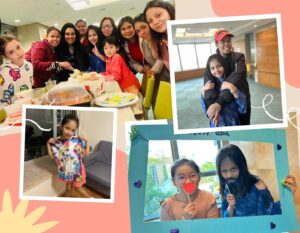


 View All
View All


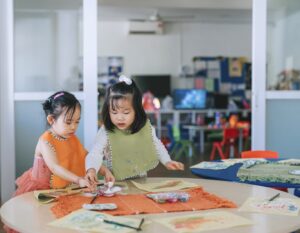


 View All
View All


 View All
View All


